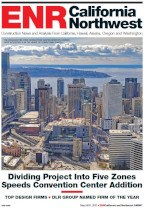Design firms in California are celebrating a new law enacted last month that limits their obligation to defend public owners from third-party lawsuits when there is no company negligence. But they remain concerned that the problem may still occur on projects for private-sector clients.
The new law, signed by Gov. Arnold Schwarzenegger (R) on Sept. 30 and set to take effect on Jan. 1, was pushed by the American Council of Engineering Cos. of California. The law responds to two controversial court rulings, one in 2008 and one this year, that expanded the duty of design professionals to defend others.
In the 2010 state appellate court decision in Universal Development L.P. v. CH2M Hill, judges upheld a ruling by a lower court that CH2M Hill Cos., the Denver-based engineer, had a duty to defend its client, housing developer Universal Development, against a complaint filed by a homeowner association. The developer cross-complained against numerous subcontractors, including CH2M Hill, for indemnity.
The court ruling came after a jury found no evidence of negligence by CH2M Hill, nor did the original complaint note any. The firm said that, in its contract, it agreed to indemnify Universal from all claims arising from any negligence on CH2M Hill’s part. ACEC Executive Director Paul J. Meyer says CH2M Hill didn’t breach its contract but was forced to pay $500,000 in legal fees.
“This bill is good for engineers and professionals because it makes it illegal for government agencies to use onerous duty-to-defend language,” says Bart Patton, a senior vice president at engineering firm Kleinfelder Inc., San Diego. “They can have the duty-to-defend [wording], but it must be tied to negligence.”
The new law doesn’t overturn these cases but limits how they can be applied, says Meyer. “The vast majority of engineering companies are smaller and would go out of business,” he says. “So with the [CH2M Hill] court ruling, client attorneys were getting very aggressive with the way they were writing contracts, and our members had to bet their firm every time they signed a contract for fear they would end up like CH2M Hill. And that is what caused us to sponsor that bill.”
But one design firm CEO says that, on private jobs, “We are having to fight it out contractually to make sure we’re not exposed. The court finding has forced us to really look at our contract language and be more discriminating of the work we are willing to take on. It’s hard to be discriminating in a tough economy, but it’s something every firm may need to do.”






Post a comment to this article
Report Abusive Comment